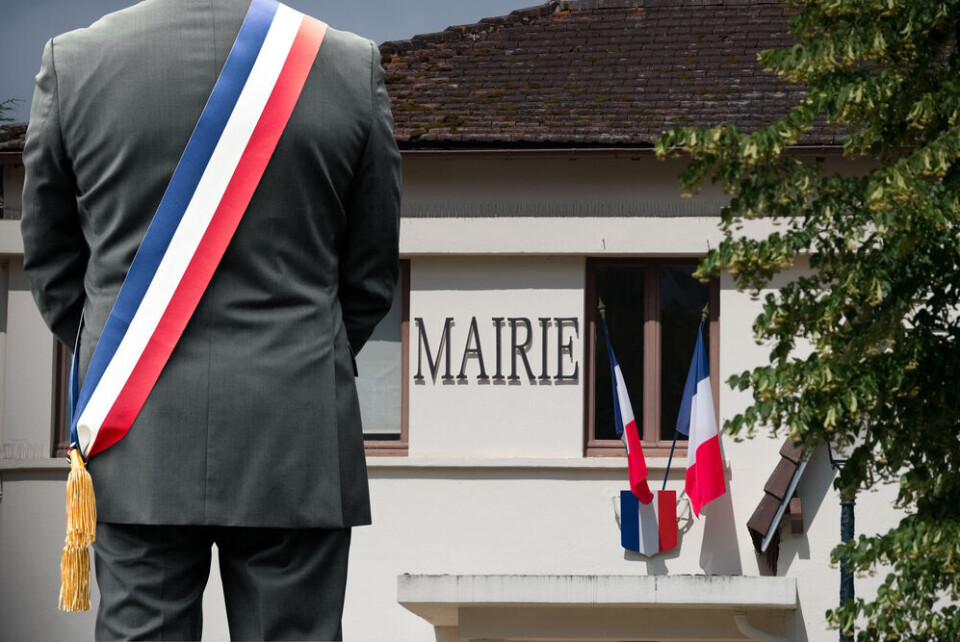-
Ryanair brings back Brive-Stansted service for summer 2026
Route was one of several axed last winter
-
Red weather alerts continue as Storm Nils sweeps France
Driver killed in south-west after tree branch falls on his lorry
-
French crisps brand gains global attention after Dua Lipa post
Singer posted photo of her shopping basket and the only food items were Brets crisps in braised chicken, honey mustard, and ‘Fromage du Jura’ flavours
Mayors push for a new local tax in France
It would be a ‘residential tax’ controlled by local authorities

A new ‘residential tax’ should be implemented to help local authorities fund services, a majority of France's mayors believe.
The tax would be collected and controlled by local authorities, allowing greater control over how much is raised and how it is used.
The idea was supported during the annual congress of the association des maires de France (AMF), held earlier this week. The congress was entitled Communes attaquées, République menacée (Communes under attack, Republic under threat).
Mayors state that ending taxe d’habitation on main homes has left a budgetary deficit that is not being replaced.
Government officials, however, say that revenue loss from the tax has been replaced “to the nearest euro” by funds that are now given to local communes directly by the state.
Discontent of mayors
Over 1,000 mayors have resigned from their posts since the 2020 election.
“If mayors are resigning and expressing their weariness, it is not just because of the violence, it is more than that, a general context [of discontent],” said Philippe Laurent, mayor of Sceaux.
One reason is the change to the taxe d’habitation property tax.
Read more: Explainer: France’s taxe d’habitation property tax
It is one of the few remaining local taxes in France, meaning rates are set, money is collected, and funds are directly allocated to local services by local authorities.
The tax is now only levied on second-homes, but previously was collected on all homes in a commune.
The revenue from the tax has been replaced by state-allocated funds (although many mayors dispute the amounts are the same), however mayors argue there has been a loss of autonomy.
The reforms to taxe d’habitation “which were made without any consultation with local elected representatives,” said mayor of Allonnes Gilles Leproust, “makes us less financially autonomous and more dependent on the State.”
There are fears the allocation of funds could go the same way as the dotation globale de fonctionnement (DGF, or global operating grant).
This is the main monetary resource allocated by the state to local authorities, however in 2024 the amount given will increase by less than the level of inflation, leaving communes facing higher costs with relatively less income.
A ‘residential tax’ is the answer for mayors
The consensus of mayors from across France’s political spectrum favour the creation of a new ‘residential tax’ that would be levied on all residents of a municipality.
“It is inefficient and unfair to make local taxpayers pay only for their property, which is the case today,” said David Lisnard, head of the AMF.
The proposed tax would allow local authorities better control over their finances and the services to which they wished to allocate funds.
One of their key arguments is that, as providers of local services, they should have more of a say in the funding that can be directed to these.
It is currently unclear who would pay the tax i.e whether it would be owners of property, a person renting it etc, and what the exact rates of the tax would be.
‘Laying groundwork for the post-Macron era’
Despite the overall consensus from local officials it is unlikely any such tax will be implemented in the coming years.
This is because President Emmanuel Macron made reducing taxes for the middle-class one of his cornerstone electoral pledges (promising a €25 billion reduction).
Furthermore, the ending of taxe d’habitation on main homes was one of the key legislative changes during his first term in office, so it is thought unlikely that he would enact a similar tax.
The mayors are not perturbed by this.
“The President of the Republic will not admit that abolishing the taxe d'habitation was a mistake," says Philippe Laurent.
“We are laying the groundwork for the post-Macron era,” he added, implying that a plan for such a tax would be available – and a key discussion point – during the next Presidential elections in 2027.
As a reminder, President Macron cannot run for a third-term without legislative change. Early polling predictions place any potential candidate from his centrist party in second-place at best.
Related articles
Hundreds of French mayors quit due to ‘Covid and increased workload’
French mayor’s house torched amid tensions over asylum seeker centre
























